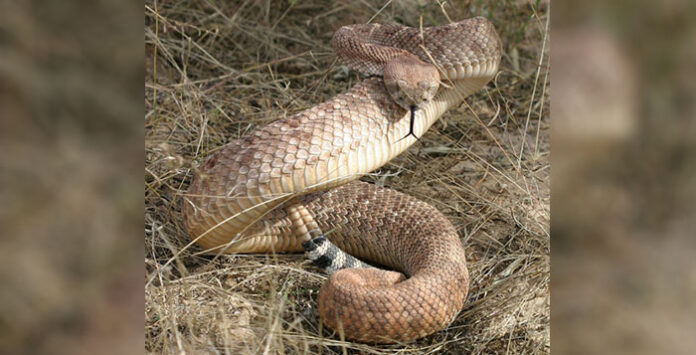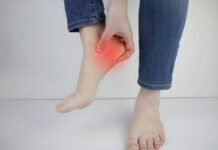
April is typically when the most rattlesnake bites are reported in Arizona, according to the state’s Game & Fish Department. So far this year, there have been 39 bites reported to the Arizona Poison and Drug Information Center, 19 of those in April.
As Arizonans get out to experience the trails and outdoors, it is important to remember that Arizona is home to 13 species of rattlesnake. The ones encountered most often are the Western diamondback, Mojave, black-tailed and sidewinder.
“Arizona has more rattlesnake species than any other state, and we can all celebrate that amazing biodiversity,” Thomas Jones, amphibians and reptiles program manager for AGFD, said.
In warm deserts, rattlesnakes are most active March through October. During the spring, rattlesnakes are most active in the daylight hours. As the days become increasingly hot, usually around early May, rattlesnakes become more active at night.
If you need to have the snake removed, some fire departments may remove snakes or you can call a snake removal service or pest company, however there will likely be a charge.
“Although accidents certainly happen, rattlesnakes are typically not dangerous unless provoked,” Jones said.
If a rattlesnake bite occurs:
• Remain calm and reassure the victim.
• Call 911/Seek medical attention without delay.
• Remove all jewelry, watches, etc. from the affected area.
• Immobilize the extremity and keep at a level below the heart.
• Decrease total body activity as much as is feasible.
What NOT to do if a rattlesnake bite occurs:
• Do NOT apply ice to the bite area.
• Do NOT use an incision of any kind.
• Do NOT use a constriction band or tourniquet.
• Do NOT administer alcohol or drugs.
• Do NOT use electric shock treatment.
By leaving rattlesnakes alone, you can significantly reduce your risk of being bitten. In fact, more than half of all rattlesnake bites are provoked by the person who was bitten. For additional information and resources about rattlesnake bites, contact the Arizona Poison Drug and Information Center at 1-800-222-1222.












![Alleged car thief released without charges Phoenix police stop a stolen vehicle on April 20, 2024. [Facebook]](https://www.inmaricopa.com/wp-content/uploads/2024/04/IMG_5040-218x150.jpg)




![City gave new manager big low-interest home loan City Manager Ben Bitter speaks during a Chamber of Commerce event at Global Water Resources on April 11, 2024. Bitter discussed the current state of economic development in Maricopa, as well as hinting at lowering property tax rates again. [Monica D. Spencer]](https://www.inmaricopa.com/wp-content/uploads/2024/04/spencer-041124-ben-bitter-chamber-property-taxes-web-100x70.jpg)